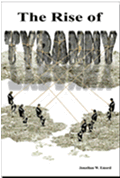DIRECTED
HISTORY IS NOT CONSPIRACY THEORY
PART 2 of 4
By Professor
Steven Yates
March 17, 2012
NewsWithViews.com
The early Keynes was much more forthright than the later and better-known Keynes of the General Theory (1935). Do we assume he was being paranoid, or that he knew exactly what he was saying: an entire population could be impoverished by slowly devaluing their currency with no corresponding increases in wages. Since 1913 our dollars have lost over 96 percent of their purchasing power. You will pay close to $20 for a good steak dinner in a restaurant these days, and over $3.50 a gallon in gas to get there. Your great grandfather paid perhaps 50 cents for his steak dinner. Gas cost him pennies per gallon.
Few people know that Keynes was involved with the British Fabian Society, founded in 1884. The Fabians began the LSE with a $5 million (equivalent in U.S. dollars) grant from the estate of deceased member Henry Hunt Hutchison in 1895. Regrettably, few scholars even of directed history have paid the Fabians sufficient attention. Carroll Quigley never mentioned them by name. I have an associate who believes he wrote Tragedy & Hope intending to hide the Fabians. I don’t know if this is true or not, but the absence of any mention of the Fabians in a book of that scope is mysterious otherwise. The LSE, of course, became one of the most influential social science academies in the world. It placed the Fabians at the helm in shaping the intellectual side of world affairs. Bankers like David Rockefeller Sr. and members of our political class such as John F. Kennedy Jr. would study economics there.
Consider now Edward Louis Bernays, the genius nephew of Sigmund Freud who founded public relations and became wealthy conducting mass advertising campaigns for corporations. In a slim tome entitled Propaganda (1928) he wrote:
The conscious and intelligent manipulation of the organized habits and opinions of the masses is an important element in democratic society. Those who manipulate this unseen mechanism of society constitute an invisible government which is the true ruling power of our country. We are governed, our minds are molded, our tastes formed, our ideas suggested, largely by men we have never heard of. This is a logical result of the way in which our democratic society is organized. Vast numbers of human beings must cooperate in this manner if they are to live together as a smoothly functioning society…
Whatever attitude one chooses toward this condition, it remains a fact that in almost every act of our daily lives, whether in the sphere of politics or business, in our social conduct or our ethical thinking, we are dominated by the relatively small number of persons … who understand the mental processes and social patterns of the masses. It is they who pull the wires which control the public mind, who harness old social forces and contrive new ways to bind and guide the world” (pp. 1 – 2; emphases mine).
Such notions motivated those who funneled millions into “social science” research during the early decades of the twentieth century via their tax-exempt foundations (Rockefeller, Ford, et al). The research was carried on by Tavistock and others, and designed to answer questions both the superelite and those at the helm of large corporations were asking. Questions like: what moves the masses? What will make them open their wallets in large numbers? How can new technologies such as radio, or the automobile—or in due course, television—be harnessed to further our goals?
What will motivate the masses to change their values, e.g., about sexuality and its acceptability outside of marriage, about the family, or about religion—especially Christianity—or about jobs and the economy, or about the permanence of the nation itself when the time is right? What will keep them entertained as we inculcate the new values we want them to hold? Assuming them not ready for the massive changes our agenda requires, what will keep them distracted and pacified while we quietly do our work?
What was this work? Orchestrating the slow dissolution of nation states, especially the United States of America with its Constitutionally limited form of government and its annoying Bill of Rights and divisions of powers, integrating them into regional regimes and finally into a world state. Quietly the superelite created both institutions capable of evolving toward world government and the instruments for a migration of power into those institutions. The first major effort was the League of Nations formed in 1919. Then there was the Bank for International Settlements created in 1930 through the Hague Agreements. The Bank for International Settlements was a central bank for all central banks, an apex of the world monetary system being assembled bit by bit. One of its founders was Montagu Norman, governor of the Bank of England and a Fabian. There would, of course, be others; the most obvious creature of superelite design is the United Nations founded in 1945, giving rise further to the International Monetary Fund and the World Bank as satellite institutions.
Arnold J. Toynbee, leading British historian and Fabian (nephew of equally famous economic historian of the same name who held similar views and died in 1883, the same year as Karl Marx; let’s not confuse the two), stated very openly at length in 1931:
If we are frank with ourselves, we shall admit that we are engaged on a deliberate and sustained and concentrated effort to impose limitations upon the sovereignty and independence of the fifty or sixty local sovereign independent States which at present partition the habitable surface of the earth and divide the political allegiance of mankind.
It is just because we are really attacking the principle of local sovereignty that we keep on protesting our loyalty to it so loudly. The harder we press our attack upon the idol, the more pains we take to keep its priests and devotees in a fool’s paradise—lapped in a false sense of security which will inhibit them from taking up arms in their idol’s defense. The local national state, invested with the attributes of sovereignty—is an abomination of desolation standing in the place where it ought not. It has stood in that place now—demanding and receiving human sacrifices from its poor deluded votaries—for four or five centuries. Our political task in our generation is to cast the abomination out, to cleanse the temple and to restore the worship of the divinity to whom the temple rightfully belongs. In plain terms, we have to re-transfer the prestige and the prerogatives of sovereignty from the fifty or sixty fragments of contemporary society to the whole of contemporary society—from the local national states by which sovereignty has been usurped, with disastrous consequences, for half a millennium, to some institution embodying our society as a whole.
Toynbee wrote these words in the wake of the frustrating diminishing influence of the League of Nations. He spoke of the kind of institution the superelite wanted and concluded:
In the world as it is today, this institution can hardly be a universal Church. It is more likely to be something like a League of Nations. I will not prophesy. I will merely repeat that we are at present working, discreetly but with all our might, to wrest this mysterious political force called sovereignty out of the clutches of the local national states of our world. And all the time we are denying with our lips what we are doing with our hands… (“The Trend of International Affairs Since the War,” International Affairs, November 1931, p. 809; emphases mine).
This era, in fact, offers a gold mine of examples of those who wrote about what H.G. Wells called The Open Conspiracy (1928). Yes, Virginia, this was a somewhat different H.G. Wells than that guy who wrote those entertaining science fiction novels (War of the Worlds, The Time Machine, et al.). Once a Fabian, he broke with them as unimaginative and not radical enough. In The Shape of Things to Come (1933), which falls somewhere in between novel and prophesy, Wells envisioned a technocratic future without Christianity or the nation state. Behavioral science would be employed to place subtle controls on the masses. The technocratic intelligentsia Wells envisioned couldn’t allow millions of common people to go about their business on their own unsupervised. Wells’s lead spokesperson opines:
“It is no good asking people what they want,” wrote De Windt. “That is the error of democracy. You have first to think out what they ought to want if society is to be saved. Then you have to tell them what they want and see that they get it.” (p. 269).
Such words speak volumes about how the superelite—and those who identify with their values—really view democracy. They view it as did Plato: an unsustainable enticement to mob rule and chaos. (I sincerely hope no one who has read this far believes they want “democracy in the Middle East”!) In The New World Order (1940)—yes, he really entitled it that—Wells observed how:
Countless people ... will hate the new world order, be rendered unhappy by frustration of their passions and ambitions through its advent and will die protesting against it. When we attempt to estimate its promise we have to bear in mind the distress of a generation or so of malcontents, many of them quite gallant and graceful-looking people (p. 129; emphases mine).
Another figure worth consulting is major British philosopher Bertrand Russell. Russell, as a “scientific” philosopher as well as a Fabian, believed in the desirability of the same kind of future Wells had articulated. In The Scientific Outlook (1931) his technocratic superelitism focused on education:
[T]he scientific rulers will provide one kind of education for ordinary men and women, and another for those who are to become holders of scientific power. Ordinary men and women will be expected to be docile, industrious, punctual, thoughtless and contented. Of these qualities contentment will be considered the most important. In order to produce it, all the researches into psycho-analysis, behaviorism, and biochemistry will be brought into play (p. 243).
He went considerably further in The Impact of Science on Society (1952):
I think the subject which will be of most importance politically is mass psychology…. What is essential in mass psychology is the art of persuasion. If you compare a speech of Hitler’s with a speech of (say) Edmund Burke, you will see what strides have been made in the art since the eighteenth century. What went wrong formerly was that people had read in books that main is a rational animal, and framed their arguments on this hypothesis. We now know that limelight and a brass band do more to persuade than can be done by the most elegant train of syllogisms. It may be hoped that in time anybody will be able to persuade anybody of anything if he can catch the patient young and is provided by the State with money and equipment.This subject will make great strides when it is taken up by scientists under a scientific dictatorship…. The social psychologists of the future will have a number of classes of school children on whom they will try different methods of producing an unshakable conviction that snow is black. Various results will soon be arrived at. First, that the influence of the home is obstructive. Second, that not much can be done unless indoctrination begins before the age of ten. Third, that verses set to music and repeatedly intoned are very effective. Fourth, that the opinion that snow is white must be held to show a morbid taste for eccentricity…. It is for future scientists to make these maxims precise and discover exactly how much it costs per head to make children believe that snow is black, and how much less it would cost to make them believe it is dark gray.
Although this science will be diligently studied, it will be rigidly confined to the governing class. The populace will not be allowed to know how its convictions were generated. When the technique has been perfected, every government that has been in charge of education will be able to control its subjects securely without the need of armies or policemen (The Impact of Science on Society, pp. 29-30; emphases mine).
This is, of course, the superelite Utopia: a world into which the unthinking masses are seamlessly eased and entirely controlled, possibly without even realizing it—like cattle.
We would be remiss to leave out the most influential set of “smoking guns,” those coming from Carroll Quigley and his massive Tragedy & Hope: A History of the World In Our Time (1966). Quigley, like the writers above, was not an isolated eccentric banging on his typewriter about imagined conspiracies. He was a respected and very well connected professor in Georgetown University’s School of Foreign Service. He had his doctorate from Harvard. His specialty was macrohistory—the study of larger trends and tendencies shaping civilizations over long periods. He taught the School’s immensely popular Comparative National Cultures course. Quigley’s knowledge of his subject was encyclopedic. Again, those inclined to do so are free to conclude that so obviously well educated a person was being paranoid or delusional when he wrote, naming names:
[O]n February 5, 1891, [Cecil] Rhodes and [William T.] Stead [a Fabian] organized a secret society of which Rhodes had been dreaming for sixteen years. In this secret society Rhodes was to be leader; Stead, Brett (Lord Esher), and [Alfred] Milner were to form an executive committee; Arthur (Lord) Balfour, (Sir) Henry Johnston, Lord [Nathaniel] Rothschild, Albert (Lord) Grey, and others were listed as potential members of a “Circle of Initiates”; while there was to be an outer circle known as the “Association of Helpers” (later organized by Milner as the Round Table organization)…. In 1909-1913, they organized semi-secret groups, known as Round Table Groups, in the chief British dependencies and the United States. These still function in eight countries.… In 1919, they founded the Royal Institute of International Affairs (Chatham House) for which the chief financial supporters were Sir Abe Bailey and the Astor Family (owners of The Times). Similar Institutes of International Affairs were established in the chief British dominions and the United States (where it is known as the Council on Foreign Relations) in the period 1919 - 1927. After 1925, a somewhat similar structure of organizations, known as the Institute of Pacific Relations, was set up in twelve countries holding territory in the Pacific area, the units in each British dominion existing on an interlocking basis with the Round Table Group and the Royal Institute of International Affairs in the same country….
From 1884 [significantly, the year the Fabian Society was founded] to about 1915 the members of this group worked valiantly to extend the British Empire and to organize it into a federal system. They were constantly harping on the lessons to be learned from the failure of the American Revolution and the success of the Canadian federation of 1867 and hoped to federate the various parts of the empire as seemed feasible, and then confederate the whole of it, with the United Kingdom, into a single organization. They also hoped to bring the United States into this organization to whatever degree was possible … (pp. 131-33).
This is the background for Quigley’s much better known remark—failing to name the Fabians who are dismissed on the preceding page as a “radical Right fairy tale [which] pictured the recent history of the United States … as a well-organized plot by extreme Left-wing elements … [which] had at its core the wild-eyed and bush-haired theoreticians of Socialist Harvard and the London School of Economics” (p. 949). But then he dropped the bomb, the most widely cited of all “smoking guns”:
This myth, like all fables, does in fact have a modicum of truth. There does exist and has existed for a generation, an international Anglophile network which operates to some extent in the way the radical Right believes the Communists act. In fact, this network, which we may identify as the Round Table Groups, has no aversion to cooperating with the Communists, or any other groups, and frequently does so. I know of the operations of this network because I have studied it for twenty years and was permitted for two years, in the early 1960s, to examine its papers and secret records. I have no aversion to it or to most of its aims and have, for much of my life, been close to it and to many of its instruments. I have objected, both in the past and recently, to a few of its policies … but in general my chief difference of opinion is that it wishes to remain unknown, and I believe its role in history is significant enough to be known (p. 950).
In other words, despite some minor differences of opinion Quigley identified with this network and its goals. Behind its activities was the cartel of globalist bankers, the core of the superelite (the Fabians would form the core of the intellectual wing of the superelite in the twentieth century, having infiltrated university faculties and national academic organizations):
[T]he powers of financial capitalism had another far reaching aim, nothing less than to create a world system of financial control in private hands able to dominate the political system of each country and the economy of the world as a whole. This system was to be controlled in a feudalist fashion by the central banks of the world acting in concert, by secret agreements, arrived at in frequent private meetings and conferences. The apex of the system was the Bank for International Settlements in Basle, Switzerland, a private bank owned and controlled by the world’s central banks which were themselves private corporations….
The growth of financial capitalism made possible a centralization of world economic control and use of this power for the direct benefit of financiers and the indirect injury of all other economic groups (p. 324, 337).
It is important not to misunderstand Quigley. He was a macrohistorian, not a directed-historian. He discusses those I call the superelite and sees them as “significant enough to be known” but not the central force shaping the modern world. This will surprise those who have read Tragedy & Hope without reading his earlier The Evolution of Civilizations (1961) which presents a theory of civilizations going through life-cycles akin to those of individuals, but unlike Spengler proposes that they are capable of rejuvenating themselves if they can embrace the right policies. He saw an emerging superelite as benign, and beneficial to this process:
| Subscribe to the NewsWithViews Daily News Alerts! |
The chief aims of this elaborate, semisecret organization were largely commendable: to coordinate the international activities and outlooks of all the English-speaking world into one (which would, it is true, be that of the London group); to work to maintain the peace; to help backward, colonial, and underdeveloped areas to advance toward stability, law and order, and prosperity along lines somewhat similar to those taught at Oxford and the University of London (especially the School of Economics and the Schools of African and Oriental Studies)(p. 954). For part three click below.
Click here for part -----> 1, 2, 3, 4,
� 2012 Steven Yates - All Rights Reserved













 Share
This Article
Share
This Article





